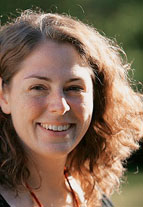Commentary: Lesley Stone
 |
| Photo courtesy of: Lesley Stone |
A physicists place is on the ballot
Few elected officials, from the President to members of the local school board, have strong backgrounds in science or engineering. Yet, many of the complex problems we facein areas such as innovation and competitiveness, health care, energy, climate change, education, and even our physical infrastructurehave policy solutions that depend on an understanding of the sciences.
Its time more scientists got involved in politics. Scientists have a contribution to make to public life. They have a way of thinking that is transferable to the policy realm; problem-solving, evidence-based thinking and testing hypotheses are all likely to generate good policy.
Just as important, scientists have specific knowledge that policymakers from other disciplines lack. Training in law (the background of many of our legislators) is useful for thinking rationally and weighing evidence, but it does not enhance understanding of the importance of nanotechnology, public health strategies, or the processes at work in climate change. These are all areas of knowledge critical to finding solutions to the obstacles we face. Further, the more diverse the expertise and experience a legislature has to draw on, the more likely it is to come up with innovative solutions that will keep us on the right track.
Eight members of the US House of Representatives hold doctoral degrees in science, including the newest addition, Bill Foster of Illinois, who is the third physicist. These scientists have contributed to law and policy in important ways, as have many who serve in state and local government. They are proof that it is possible to serve ones community not only in the lab, but also in civic life.
Its easier than you think to get involved. The local school board is a great place to start. There are about 15,000 school boards in the United States, the vast majority of them elected. Most campaigns cost less than $1000though in bigger cities the cost is closer to $10,000and serving may mean a commitment of about five hours a week. Yet this commitment is minor considering the important contributions a scientist can make.
Who better than a scientist to evaluate science, technology, engineering, and mathematics curricula? In some parts of the country, people are searching for innovative ways to insert creationism into science classes. A scientist can keep this from happening by explaining the difference between a scientific theory and an untestable hypothesis. Even in localities where intelligent design is not an issue, we are struggling to find effective ways to help our students learn cutting-edge material so they are prepared for an increasingly competitive world. Study after study shows children in the United States are falling behind in critical areas of math and science; publicizing this issue has not made it go away. But, serving on a school board where you can help evaluate your communitys educational programs and options could be a step in the right direction.
For those interested in learning more about running for office, Scientists and Engineers for America, along with a group of scientific societies, scheduled a May 10th workshop in Washington, DC, to teach scientists and engineers the nuts and bolts of running a campaign.
Even if running for office is not on your horizon, it is important to take action. Most scientists believe science should have a place at the table when important policy decisions are made; scientific advisory boards should include the best scientists available; scientists working for the government should be free to discuss their research, regardless of the political implications; and when science is misrepresented by the government, people who speak out should not fear retribution. Yet, well-documented breaches of these principles have become all too common. To ensure that our government values science, we must demonstrate that we value it, both by asking candidates for office hard questions and through the ballot box.
If scientists invest time and energy in politics, whether by running for office or by making sure that potential representatives know what their constituents value, policy will change for the better. Not getting involved means accepting the status quo.
Lesley Stone is executive director of Scientists and Engineers for America.
Click here to download the pdf version of this article.


